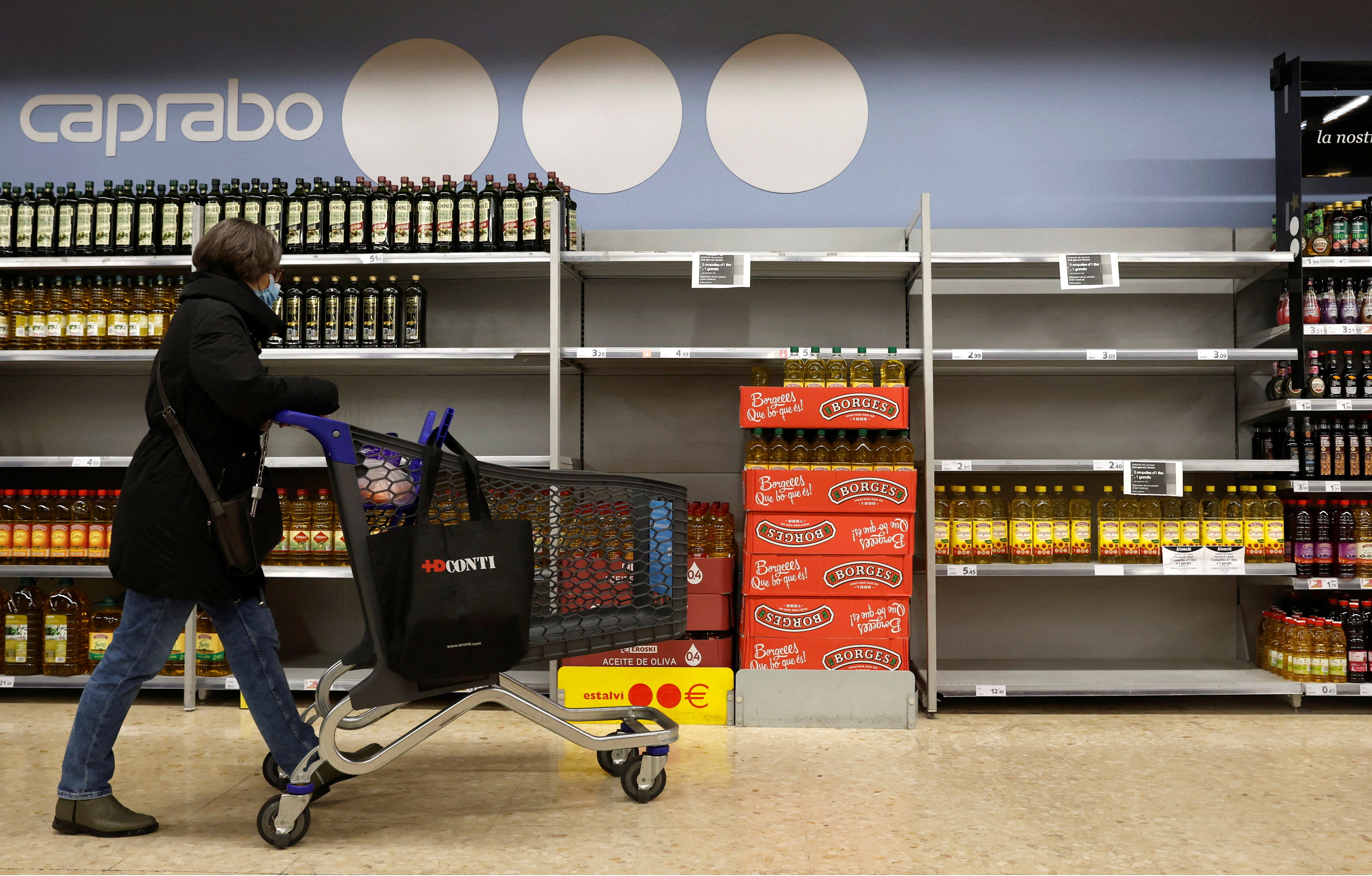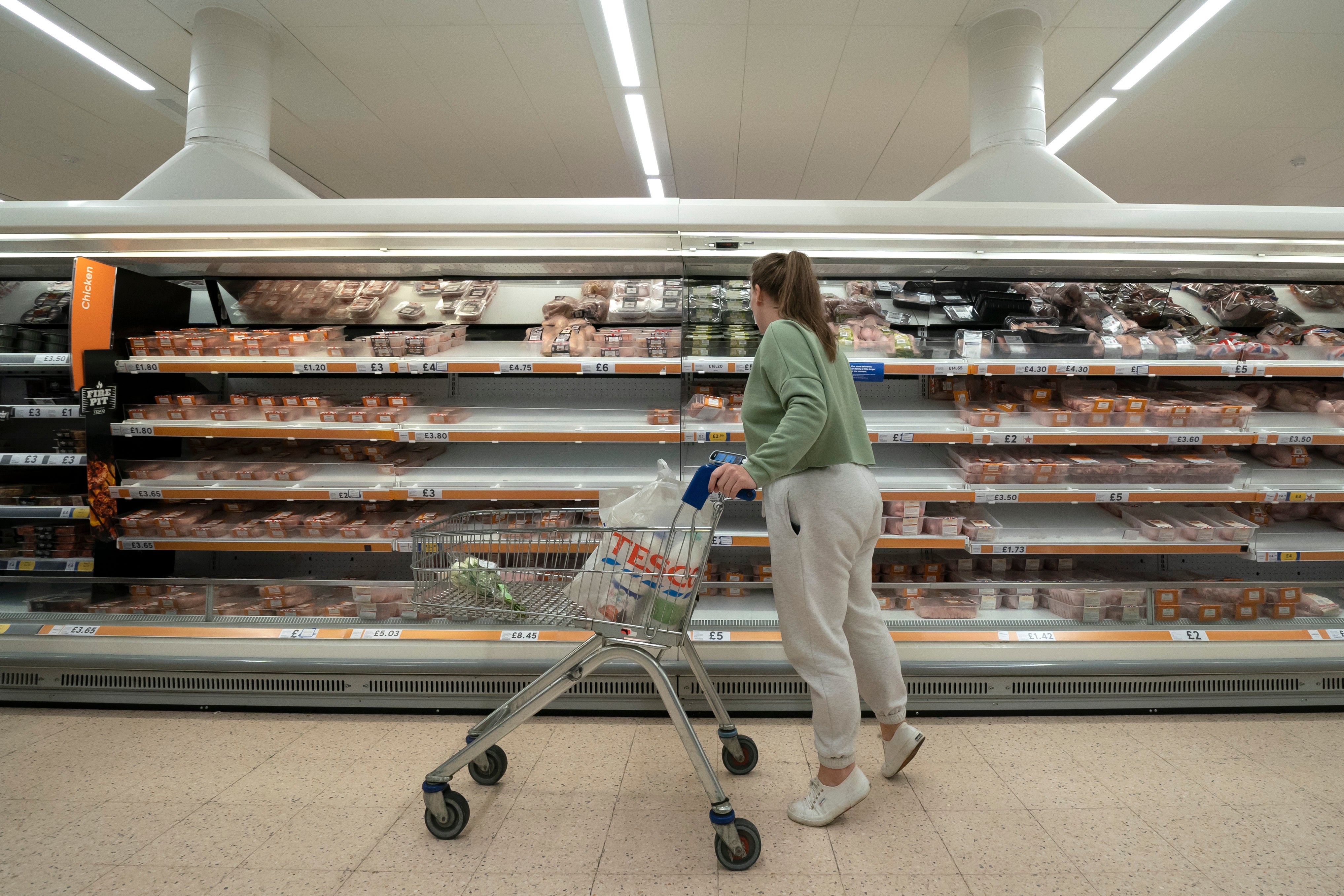Ukraine war fears saw surge in British shoppers ‘panic buying’ essentials from toilet roll to dried pasta
It comes as the forecast for global trade growth this year was revised down to 3 per cent from 4.7 per cent today
Your support helps us to tell the story
From reproductive rights to climate change to Big Tech, The Independent is on the ground when the story is developing. Whether it's investigating the financials of Elon Musk's pro-Trump PAC or producing our latest documentary, 'The A Word', which shines a light on the American women fighting for reproductive rights, we know how important it is to parse out the facts from the messaging.
At such a critical moment in US history, we need reporters on the ground. Your donation allows us to keep sending journalists to speak to both sides of the story.
The Independent is trusted by Americans across the entire political spectrum. And unlike many other quality news outlets, we choose not to lock Americans out of our reporting and analysis with paywalls. We believe quality journalism should be available to everyone, paid for by those who can afford it.
Your support makes all the difference.Public concern over Russia’s invasion of Ukraine spiralling into a European war prompted a rush in panic buying in March, new figures suggest.
Similar to the stockpiling during the Covid-19 pandemic, more than a third of Brits rushed to stock up on essential items, including loo roll, paracetamol and dried pasta, according to research by Barclaycard.
Around 35 per cent of those who took part in the survey said they had been buying more cleaning products, and dried and tinned goods.
When compared to the same time in 2019, overall UK spending was also up 17.7 per cent in March this year, showing a marked increase in consumer activity.
As shoppers rushed to purchase essential items amid Vladimir Putin’s invasion of Ukraine, several supermarkets began to ration certain agricultural products - such as sunflower oil - as the country is a leading exporter of grains and cooking oils.
Empty shelves were also spotted in European supermarkets as the war raged.

José Carvalho, of Barclaycard, said: “Many sectors saw strong growth in March compared to the same period in 2019, as sunnier weather encouraged Britons to socialise at pubs and bars, book staycations and update their wardrobes for spring and summer.
“However, rising fuel prices and household bills are clearly starting to influence consumer behaviour, with many changing their travel and shopping habits to save money.”
It follows a series of shocking figures published by the United Nations (UN) last month showing that global food prices rose to all-time highs for cereals, meats and cooking oils.
According to the UN’s Food and Agriculture Organisation’s monthly food price index showed that cereal prices had risen by 17 per cent, wheat 19.7 per cent and maize 19.1 per cent in March due to the disruption to the supply chain.

Elsewhere today, the World Trade Organisation (WTO) revised down its forecast for global trade growth this year to 3 per cent from 4.7 per cent as a result of the impact of the Russian war in Ukraine, and warned of a potential food crisis caused by surging prices.
The report from the global trade watchdog said the conflict had damaged the world economy at a critical juncture at a time when Covid-19 is still weighing on the recovery.
“The economic reverberations of this conflict will extend far beyond Ukraine’s borders,” said WTO director-general Ngozi Okonjo-Iweala.
“It’s now clear that the double whammy of the pandemic and the war has disrupted supply chains, increased inflationary pressures and lowered expectations for output and trade growth.”
The Geneva-based body said that global trade growth in 2023 is expected to be 3.4 per cent, noting that both 2022 and 2023 estimates are less certain than usual due to uncertainty about the conflict.
Okonjo-Iweala also warned of a looming potential food crisis that would hit poor countries the hardest.
“This is why we need to act and act decisively on this issue of food in order to avoid food riots,” she said, citing the need for more transparent monitoring systems and potential releases of buffer stocks to lower prices.
With additional reporting from Reuters

Join our commenting forum
Join thought-provoking conversations, follow other Independent readers and see their replies
Comments